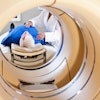
NEW YORK (Reuters Health), Apr 15 - There is limited evidence that homeopathic remedies ease the side effects of cancer treatments, but they at least seem to cause no serious adverse effects or drug interactions, according to a report published Tuesday.
In a review of eight clinical trials that included 664 cancer patients, researchers found preliminary evidence that certain homeopathic remedies may lessen some cancer therapy side effects. However, lead researcher Dr. Sosie Kassab, of the Royal London Homeopathic Hospital in the U.K., and co-investigators stress that these trials need to be replicated before any recommendations can be made.
One study found that topical calendula -- an extract from marigolds -- may be helpful for skin inflammation from radiation therapy for breast cancer. Another suggested that a mouthwash called Traumeel S -- a mix of various plant extracts and minerals -- can help ease treatment-related inflammation in the mouth.
None of the other trials showed any benefits from homeopathic products, the researchers report in the Cochrane Library, a publication of an international organization called the Cochrane Collaboration, which evaluates medical research.
It is too soon to recommend any homeopathic remedy to cancer patients, according to lead researcher Kassab said.
"There are very few studies looking at homeopathic medicines for adverse effects of cancer treatments," Kassab told Reuters Health, "and this review found no evidence of sufficient quality or quantity to support the effectiveness or ineffectiveness of these interventions."
As far as safety, though, Kassab said she and her colleagues found no evidence that any homeopathic remedies caused serious side effects or interfered with patients' conventional cancer care.
Homeopathy, which originated in Germany in the 1700s, is based on the principle of "like cures like." The theory is that substances that create certain symptoms can also treat those same symptoms if given in a highly diluted form.
Homeopathy is controversial because a number of its central concepts do not accord with modern science, and many studies have found that the remedies are no more effective than placebos (inactive substances).
The calendula study included 254 breast cancer patients undergoing radiation who were randomly assigned to take either topical calendula or a standard ointment containing an aspirin-like compound called trolamine to prevent acute dermatitis during radiotherapy.
As a group, the calendula patients suffered less skin inflammation during radiation treatment.
The Traumeel S study involved 32 children undergoing chemotherapy who were randomly assigned to use either the mouthwash or a placebo rinse.
In general, researchers found that children who used the herbal rinse had less severe mouth inflammation in response to chemotherapy.
Kassab said that the findings from the two studies should be considered to be preliminary.
Cancer patients should always consult their doctor before trying homeopathic remedies, which are readily available over-the-counter, Kassab cautioned.
"It is especially important," she said, "to discuss the use of topical agents with radiotherapy and chemotherapy with doctors, as they may have very clear guidelines as to what patients should and should not take alongside their conventional treatments."
By Amy Norton
Source: Cochrane Library, online April 15, 2009.
Last Updated: 2009-04-14 11:01:57 -0400 (Reuters Health)
Copyright © 2009 Reuters Limited. All rights reserved. Republication or redistribution of Reuters content, including by framing or similar means, is expressly prohibited without the prior written consent of Reuters. Reuters shall not be liable for any errors or delays in the content, or for any actions taken in reliance thereon. Reuters and the Reuters sphere logo are registered trademarks and trademarks of the Reuters group of companies around the world.
















